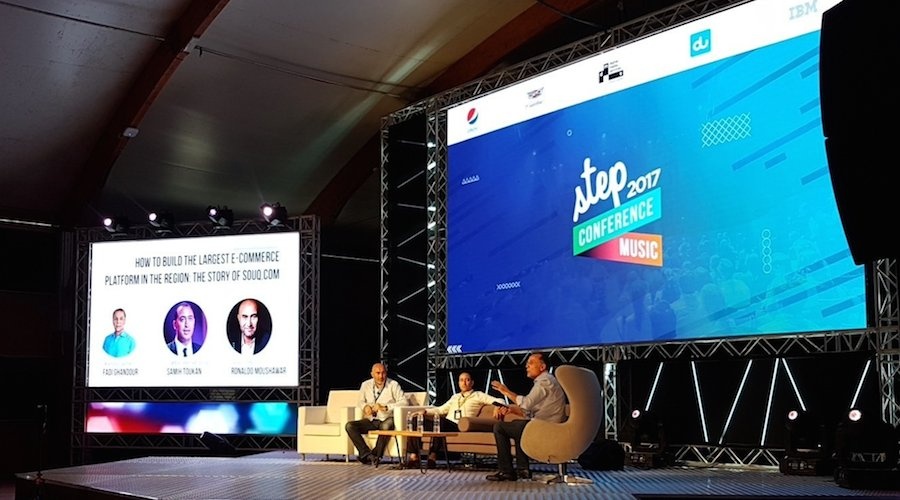What we learned about the media industry at #STEP2017

The reader is king.
After an era of praising content as the supreme power in media, the focus today is shifting towards the consumer.
“Content is still king," said AJ+ managing director Dima Khatib at Step Conferenc2 2017 this week, during a panel dissecting the nature of news consumers. But ‘working in media is like sailing. You have to adapt to the wind and sea. Us producers need [to adapt] to figure out how to reach audiences and target them."

Media outlets are suffering and struggling to sustain their impact, thanks to the huge and continuing consequences social media has such as fake news, citizen journalism, and the fact that now anyone can create content.
"The region is not being slow, the whole process is just new, and all players need time to adapt to the change,” said Chaker Khazaal, the newly appointed editor-in-chief at Step.
Alongside social tools, new technologies are giving people the ability to decide what content they want and when they want to consume it.
A marriage between publishing and distribution
There is a disconnect today between the outlet that publishes content, be it news or other material, and the online distribution channel.
“Over 80 percent of publishers are not profitable today,” said Ziad Khammar from DMS. “Only 57 percent of the time [do] users know the name of the publisher behind the content they are consuming.”
Today’s social media algorithms are pushing people to consume content recommended by their friends or based on what they’ve previously read, rather than following certain outlets featuring editors’ choices.
Khatib said it was difficult to maintain a balance between publishing and distribution, but for her maintaining that link wasn’t a critical element.
"It is a very competitive market, and anybody can produce viral content, which is wonderful, pushing us to work hard,” she said. “I don’t mind people watching AJ+ and not knowing it is AJ+, what I care about mostly is putting the message out there.”
AJ+ was looking for impact, rather than views, Khatib said, which was a matter of earning readers’ trust “over and over every day”.
Furthermore, consumers are not the same passive receptors of content. They are more conscious and more aware, and take part in creating and correcting stories.
"When readers see ‘sponsored content’ they feel you are using them to make money,” Khatib said, although they were getting used to some ads, such as those on Youtube.

What happened to credibility?
As publications in this region struggle to adapt to the changes around them, they must also contend with a shortage of journalists who know and practice ethical and sound reporting.
“In the region we are struggling to find talented and ethical journalists, up to the content standards we want to maintain. We see a lot of writers turning towards blogging and creating general light content popular on social media channels,” Forbes Middle East editor-in-chief Khuloud Al Omian told Wamda.
Among the most important courses in media studies are the ones tackling the journalism code of ethics.

“The number of shares on a story has become an addiction among content creators. We are forgetting parts of the ethical code of reporting and journalism which is injected in us at school,” said Khazaal.
Media outlets made a sensation and a business out of the refugee crisis. “Sadly we’ve made an emotional diarrhoea state out of the refugee crisis. As editors we need to step back and remember the basic ethics,” Khazaal said.
The content industry in the region has shifted in the last 10 years. Arab communities are telling their own stories and on social media platforms have become media platforms themselves.
"Words have consequences and we very often forget that,” said Kim Ghattas from the BBC.


